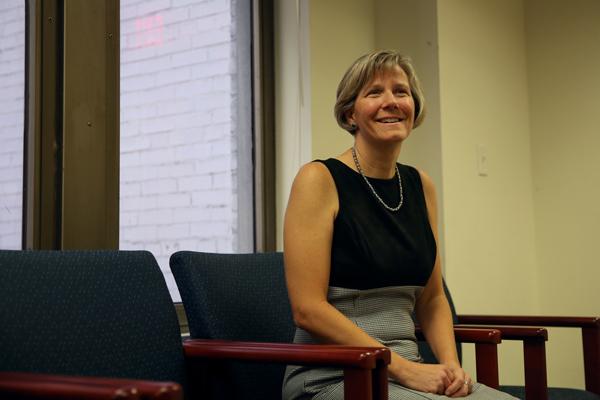Updated: Nov. 17, 2016 at 11:56 a.m.
GW’s top retention officials are looking to learn more from partner organizations.
Last year, the University announced several partnerships with nonprofit organizations to increase accessibility for low-income and diverse students. Officials said while no new partnerships are in the works, the retention division is looking into replicating techniques these partner groups use to keep students engaged and connected.
Last October the University announced it would offer full-tuition scholarships to 10 students from the Atlanta chapter of the Posse Foundation. Students, who are chosen based on qualities like classroom leadership, are sent in regional groups with the hopes that with that support system they will be more likely to graduate from that institution on time.
While five of GW’s peer schools partner with the Posse Foundation, 10 peer schools are involved in Say Yes to Education grants, which the University signed onto at the same time. These full-tuition grants are also based on attracting a more diverse pool of applicants.
Laurie Koehler, the vice provost for enrollment management and retention, said the retention office is looking at potential improvements to provide students with the support they need.
“One of the things we are looking is at how do we make sure students are actually supported,” Koehler said.
In the past, GW has taken several steps to ensure freshman feel supported, such as establishing a first generation mentoring program. While some initiatives have been successful, others such as the Guide to Personal Success program, which paired incoming freshman with upperclassmen, faculty and alumni to ease the transition, have ended due to lack of interest.
Although it’s impossible for each of GW’s 10,000 undergraduate students to get the kind of personal attention Posse students and athletes get, retention officials are finding ways to apply some of the same tactics, Koehler said.
“The really personal connection model that is students feeling connected to someone at the University, to peers, to a staff member or a faculty member, has a profound impact on their level of happiness at that institution,” Koehler said.
Students began an organization for first-generation students last year, saying that group can sometimes be more likely to struggle in college. That group began offering a first-generation monthly dinner, where those students can meet each other and administrators who were also first-generation students, like Koehler and Dean of Student Affairs Peter Konwerski are.
Koehler added that for local programs like the District Scholars Program, which is a GW-run program to help local D.C. students cover tuition costs, retention staff are working to create a series of academic workshops on college life topics, like time management, to give students the means to be successful from day one of college before they’ve officially enrolled.
“We have an opportunity to connect those students to campus before they get here,” Koehler said.
As for new partnerships, Koehler said GW is not currently looking to expand.
“With outside partnerships, there is nothing directly in the pipeline,” Koehler said.
Officials have taken other steps to increase the diversity of the applicant pool by no longer requiring applicants to submit SAT or ACT scores and admissions office staff helping students at local high schools fill out college applications.
Oliver Street, the director of retention, said his office is working with local organizations and nonprofit organizations to learn what kinds of support are most effective.
“I think capitalizing and building upon the partnerships, that has already been started,” Street said.
Street added that access and support is a major part of increasing GW’s retention rate, which sits at 93 percent.
The Posse Foundation provides its students with pre-college training before they start school. Officials said they expressed that they wanted to do something similar to this, but with local foundations.
Deborah Bial, the president and founder of the Posse Foundation, said their organization works because it comprehensive in preparing students for college life.
“During their senior year of high school, Posse scholars participate in eight months of pre-college training leading up to matriculation,” Bial said.
Bial added that the organization credits much of its success to the universities that collaborate with them.
“We literally could not exist without the investments of our partner colleges and universities. All of these elements help to explain why Posse Scholars graduate at such high rates,” Bial said.
Elise Zaidi, Jacqueline Thomsen and Bridie O’Connell contributed reporting.
This post was updated to reflect the following corrections:
The Hatchet incorrectly reported Laurie Koehler’s title. It is now correct. The Hatchet also incorrectly reported that it is called the District Scholars Foundation. It is the District Scholars Program. We regret these errors.







